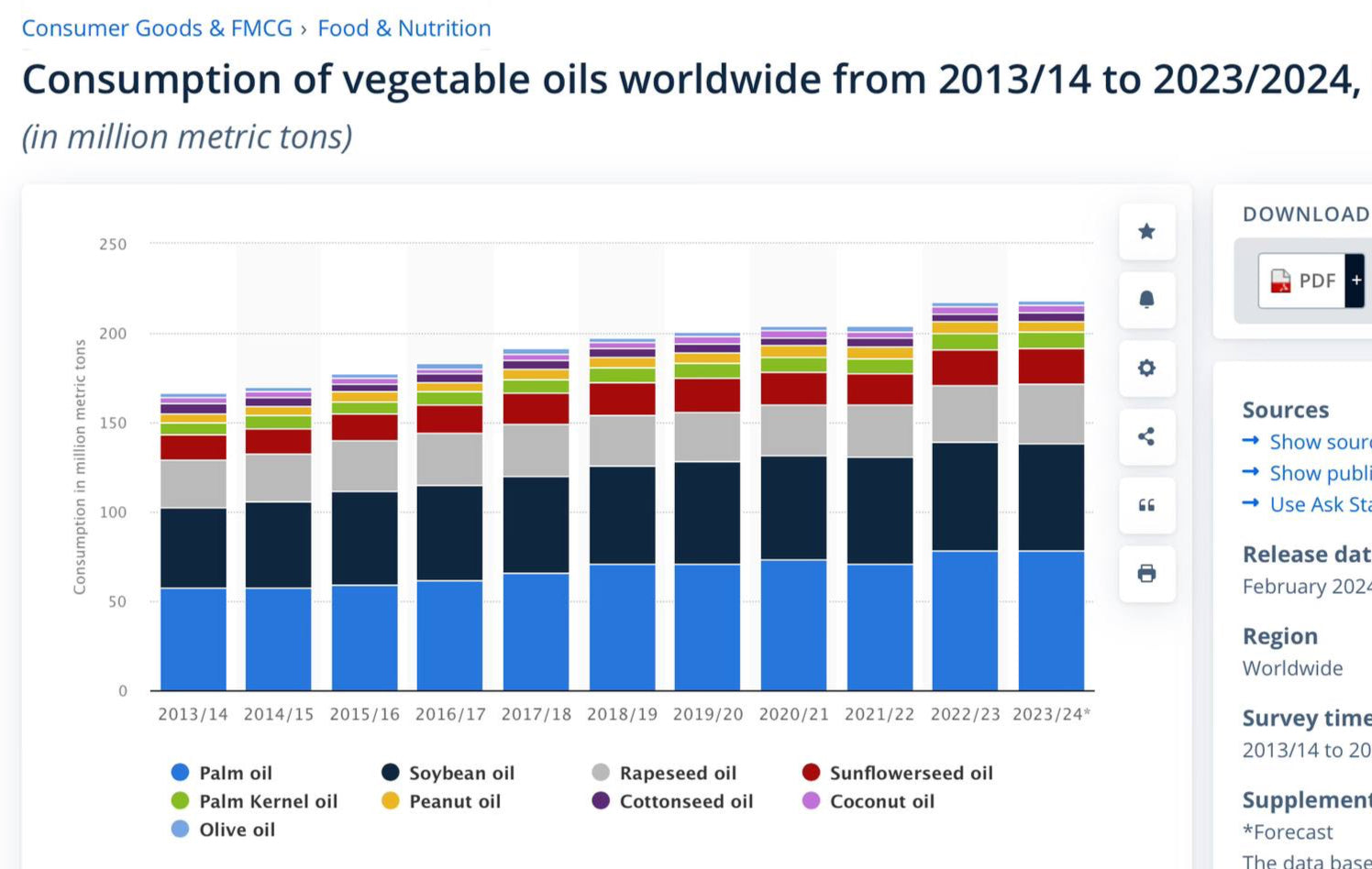
The dangers of seed oils - it's EVOO for the win!
A US government-funded study from researchers in Florida suggests that seed oils and other ultra-processed foods could lead to inflammation and fuel a rise in colon cancers
Doctors warn cooking oil used by millions may be fueling an explosion of colon cancers in young people
Consuming large amounts of seed oils – which include sunflower, canola, corn and grapeseed – has long been linked to inflammation in the body.
But now a study analyzing the tumours of more than 80 patients with colon cancer has found they may also raise the risk of one of the fastest-growing forms of the disease.
Researchers found patients' tumours had high levels of bioactive lipids, microscopic fatty compounds produced when the body breaks down seed oils.
These lipids are believed to be dangerous in two ways - they promote inflammation which helps cancers grow and they prevent the body from fighting the tumors.
The researchers are urging people to swap from seed oils and instead focus on oils with omega-3 fatty acids such as olive and avocado oil.
The team from the University of South Florida, who did the latest study, said that Americans consume too many of 'these bad oils.'
The average American consumes almost 100 lbs (~45 kgs) of seed oils per year, according to some estimates, which is up about 1,000-fold compared to the 1950s.
The latest study, published in the journal 'Gut', looked at 81 tumour samples from colorectal cancer patients ages 30 to 85.
Just over half of the patients had stage three or four cancer, while one-third were at stage two.
The team found that patients with colorectal cancer had significantly higher levels of bioactive lipids than healthier fats in their tumors.
Seed oils naturally contain fatty acids, including omega-6s and polyunsaturated fatty acids. These fatty acids are converted into bioactive lipids through a complex biochemical process in the plant seed.
When consumed, the acids are synthesized in a part of the plant cell called the plastid, which manufactures and stores food.
This makes them form into longer chain fatty acids called arachidonic acid. Enzymes then convert arachidonic acid into eicosanoids, a type of bioactive lipid.
Finding bioactive lipids in the colon suggests the body has metabolized them, which occurs through eating foods that contain omega-6 fatty acids. These have been linked to inflammation in the colon when consumed in excess.
In the case of colon cancer, inflammation causes cells to constantly split and regenerate in the colon, making them more prone to cancer-causing errors like mutations.
Chronic inflammation also suppresses the immune system's ability to destroy those abnormal cells.
Dr Timothy Yeatman, study author and professor of surgery in the USF Health Morsani College of Medicine, said: 'It is well known that patients with unhealthy diets have increased inflammation in their bodies.
'We now see this inflammation in the colon tumors themselves, and cancer is like a chronic wound that won’t heal – if your body is living off of daily ultra-processed foods, its ability to heal that wound decreases due to the inflammation and suppression of the immune system that ultimately allows the cancer to grow.'
Read more on the subject in this in-depth Scientific American article - click here
Did you know… olive oil forms a tiny fraction of the edible oils consumed worldwide? (And premium EVOO is a fraction of that fraction!)

